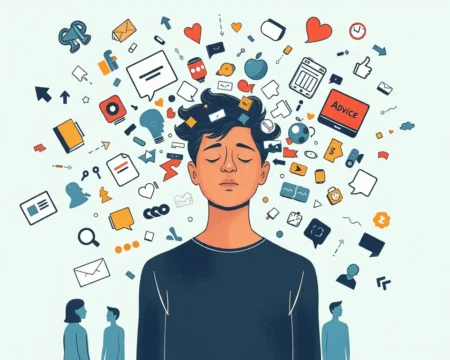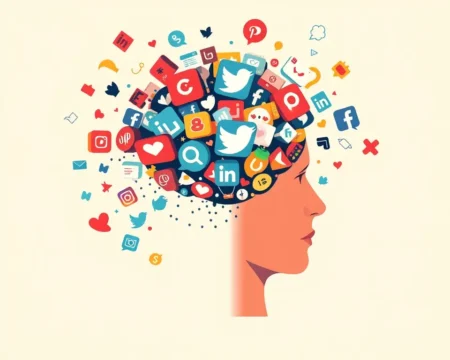The self-help industry has exploded, promising personal transformation, happiness, and success. From best-selling books to online courses, the market is saturated with advice, techniques, and strategies designed to help individuals improve their lives. But does this massive self-help movement actually work, or is it just a feel-good fad?
The Allure of Self-Help
The appeal of self-help is undeniable. It taps into a fundamental human desire for growth, fulfillment, and a better life. The promise of unlocking one’s potential, overcoming challenges, and achieving personal goals is highly attractive. Self-help books often sell the dream of becoming happier, smarter, and more successful, offering a sense of control and empowerment to those seeking change. This is rooted in the basic psychological need for growth and self-actualization, as described in Maslow’s hierarchy of needs.
The self-help industry’s popularity also stems from its accessibility. Unlike traditional therapy, self-help resources are widely available and often more affordable. They offer a sense of anonymity and can be pursued at one’s own pace, making them a convenient option for those who may be hesitant to seek professional help. Furthermore, in many cultures, self-reliance and the “do-it-yourself” mentality are highly valued, making self-help an appealing route to personal development.
Examining the Effectiveness of Self-Help
While the self-help industry is booming, questions remain about its effectiveness. Critics argue that many self-help resources lack scientific validation and may even promote unrealistic expectations. Some have called it “shelf help” as opposed to self-help, due to the lack of action and implementation of suggested ideas.
Evidence-Based Approaches
Despite the criticisms, some self-help approaches have demonstrated positive results. For example, Cognitive Behavioral Therapy (CBT), is an evidence-based approach often adapted into self-help formats, and has shown promise in treating conditions like anxiety and depression. CBT focuses on identifying and changing negative thought patterns and behaviors, helping individuals develop coping mechanisms. Studies suggest that guided self-help CBT, where individuals work through materials with some therapist support, can be as effective as traditional face-to-face therapy for certain conditions. There are many CBT self-help books and programs that are available.
Acceptance and Commitment Therapy (ACT), another evidence-based therapy, has also been adapted for self-help. ACT focuses on accepting difficult thoughts and feelings while committing to valued actions. Research shows that ACT self-help can be beneficial in reducing depression and anxiety, with the level of professional guidance positively affecting the outcome.
The Role of Self-Care
The concept of self-care has become increasingly intertwined with self-help. Self-care involves nurturing one’s physical, emotional, and mental well-being and is linked to improved mental health, self-esteem, and optimism. It emphasizes the importance of prioritizing one’s own needs to maintain overall wellness. Activities like exercise, a healthy sleep routine, and taking time to relax and de-stress are all forms of self-care that can have positive effects. However, some experts point out that self-care, like self-help, can be misinterpreted, leading to avoidance or a neglect of problems.
Criticisms and Caveats
Despite the potential benefits, the self-help industry faces significant criticisms:
- Lack of Scientific Validation: Many self-help books and programs lack rigorous scientific backing. Advice is often based on anecdotal evidence or the author’s personal experiences rather than on peer-reviewed research. This can lead to ineffective or even harmful advice being widely disseminated.
- Unrealistic Expectations: Self-help marketing often creates unrealistic expectations of rapid and easy transformation. This can lead to disappointment and feelings of failure when individuals do not achieve the promised results. The industry has been accused of creating “placebos” that create temporary feelings of accomplishment without real change.
- Profit-Driven Motives: The self-help industry is a multi-billion dollar business, and the pursuit of profit can sometimes overshadow the desire to genuinely help people. The incentive is to create the perception of change rather than real, lasting change.
- Reinforces Inferiority and Shame: Some experts argue that self-help materials can reinforce feelings of inadequacy and shame. If someone feels that they are fundamentally broken, self-help material can feed into this idea rather than help them heal.
- Avoidance: For some, self-help can become another form of avoidance. By constantly seeking new advice and techniques, individuals may avoid addressing the underlying issues that are hindering their progress.
- Oversimplification of Complex Issues: The self-help industry can oversimplify complex human problems, suggesting that they can be solved by merely following a few steps or using positive thinking. This can be detrimental for those with serious mental health conditions that require professional intervention.
- Contradictory Information: There is no universal standard in self-help, which often leads to conflicting advice and can be confusing and overwhelming.
- Generalization: Self-help books often provide generalized advice that may not be applicable to every individual or situation.
Making Self-Help Work for You
Despite the pitfalls, self-help can be a valuable tool if approached with caution and discernment. Here are some suggestions for getting the most out of self-help resources:
- Be a Critical Consumer: Evaluate the credentials of the author and look for evidence-based approaches, like CBT or ACT. Be wary of claims that seem too good to be true.
- Focus on Action: Reading a self-help book is not enough. Real change requires consistent effort and the application of what you learn.
- Be Patient and Realistic: Transformation takes time and effort. Avoid falling into the trap of seeking instant solutions.
- Consider Professional Guidance: If you are struggling with significant mental health issues, self-help resources should not replace professional therapy. A therapist can provide personalized guidance and support.
- Combine with Other Practices: Self-help materials can be combined with other strategies that are proven, like having strong social relationships, exercise, mindfulness practices, and getting enough sleep.
- Focus on Long Term Goals: Think beyond just happiness or wealth, and consider your legacy. Having a long-term purpose will help motivate and lead to real growth.
- Self-Awareness: It is important to become aware of your emotional needs and focus on long term wellness.
- Focus on Self-Compassion: Be kind to yourself. It is okay to make mistakes and not be perfect. Self-compassion allows room for growth without self-judgement.
The Verdict
The self-help industry is a mixed bag. While it can provide valuable insights, motivation, and practical tools for personal growth, it is not a magic bullet. The key to its effectiveness lies in approaching it with a critical and discerning mindset, choosing resources wisely, and focusing on action. Self-help should be viewed as a supplement, rather than a replacement, for professional support when needed. The best approach to personal development is to be informed, proactive, and committed to long-term wellness.










